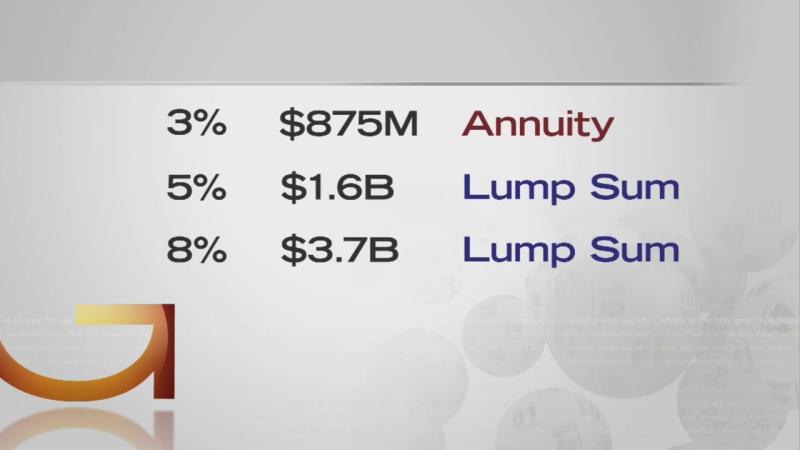Should you take an annuity or a lump sum?
Whether you should take an annuity or a lump sum as your retirement payment depends on your financial situation, goals, and preferences. Both options have their advantages and drawbacks, and the choice you make can significantly impact your financial security in retirement. Here are some considerations to help you decide:
Lump Sum:
Immediate Access to Funds: Choosing a lump sum provides you with a significant amount of money upfront, which you can use immediately for various purposes, such as paying off debt, making a large purchase, or investing.
Investment Control: With a lump sum, you have control over how the money is invested. You can choose your investment strategy, potentially leading to higher returns if you make sound investment decisions.
Inheritance: If you pass away, any remaining funds from a lump sum can be passed on to your heirs or beneficiaries.
Flexibility: A lump sum offers flexibility in managing your finances, and you can adjust your withdrawals based on your needs and market conditions.
Considerations:
- Managing a lump sum requires financial discipline, as there's a risk of overspending or poor investment decisions.
- You're responsible for ensuring that your lump sum lasts throughout your retirement.
Annuity:
Guaranteed Income: An annuity provides a regular stream of income, typically for life, which can help cover essential living expenses and ensure you won't outlive your savings.
Reduced Investment Risk: Annuities offer a level of protection from market fluctuations, as they provide a fixed or predictable income stream.
Simplicity: Annuities simplify retirement planning, as they require no investment decisions, and you don't need to worry about managing the money.
Protection Against Overspending: An annuity can prevent you from depleting your savings too quickly, ensuring a steady income.
Considerations:
- Annuities can be less flexible than a lump sum, as the income may not adjust for inflation or changing financial needs.
- Once you commit to an annuity, it can be challenging to change your mind or access additional funds.
Ultimately, the decision depends on your financial goals and risk tolerance. Some individuals may choose a combination of both options, using a lump sum to cover immediate expenses or invest for growth and purchasing an annuity to secure a guaranteed income for essential expenses.
It's advisable to consult with a financial advisor or retirement planner who can assess your specific financial situation, help you understand your options, and provide personalized recommendations based on your retirement goals and circumstances. Your decision should align with your retirement income needs, risk tolerance, and long-term financial objectives.
Annuity vs. Lump Sum: Making the Right Financial Decision
When it comes to retirement planning, one of the most significant decisions you'll make is whether to receive your retirement savings as an annuity or a lump sum payment. Both options have their own set of advantages and disadvantages, so it's important to carefully consider your individual circumstances before making a decision.
Annuity
An annuity is a series of payments that you receive from an insurance company over a period of time. annuities can provide a steady stream of income in retirement, which can be helpful for budgeting and planning for the future. They also offer protection against the risk of outliving your savings, as you will continue to receive payments even if your savings run out.
Lump Sum
A lump sum payment is a one-time payment of your entire retirement savings. With a lump sum payment, you have greater control over your money and can invest it as you see fit. You may also be able to save on taxes by taking a lump sum payment.
Factors to Consider When Choosing Between Annuity and Lump Sum
When deciding whether to choose an annuity or a lump sum payment, there are a number of factors to consider, including:
Your age: If you are younger and in good health, you may be better off taking a lump sum payment, as you will have more time to invest it and grow your savings. If you are older or have health concerns, you may prefer the security of an annuity.
Your risk tolerance: If you are risk-averse, you may prefer the security of an annuity. If you are more comfortable with risk, you may be better off taking a lump sum payment and investing it yourself.
Your financial needs: If you need a steady stream of income in retirement, you may be better off with an annuity. If you have other sources of income, you may be able to get by with a lump sum payment.
Your tax situation: Taking a lump sum payment may have tax implications, so it's important to consult with a tax advisor before making a decision.
Pros and Cons of Taking a Lump Sum Payment in Retirement Planning
Pros:
- Greater control over your money
- Ability to invest as you see fit
- Potential for higher returns
- May save on taxes
Cons:
- Risk of outliving your savings
- Need to manage your own investments
- May be difficult to invest wisely
Conclusion
The decision of whether to choose an annuity or a lump sum payment is a personal one that should be based on your individual circumstances. There is no right or wrong answer, and the best option for you will depend on your age, risk tolerance, financial needs, and tax situation. It's important to do your research and consult with a financial advisor before making a decision.













